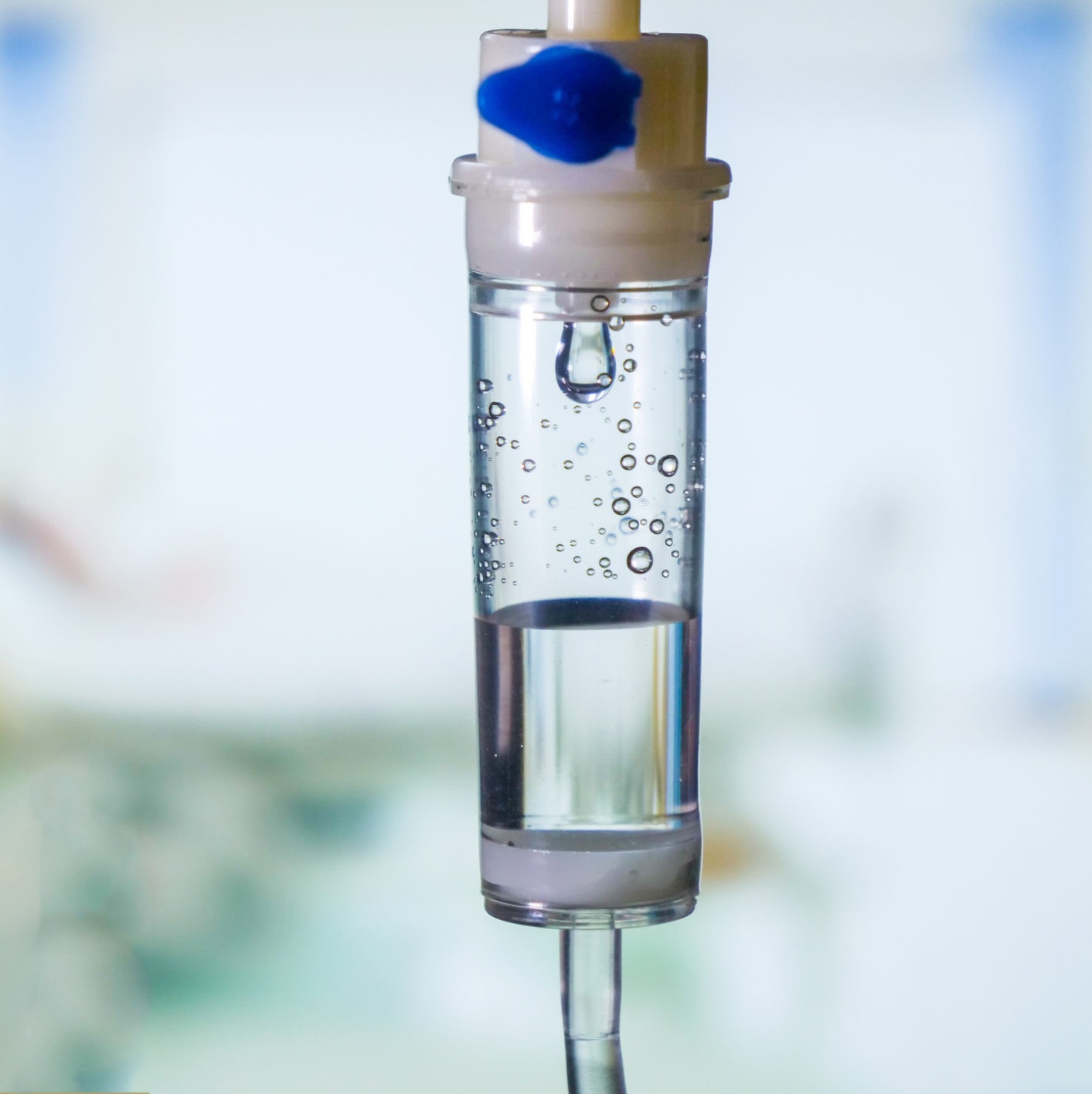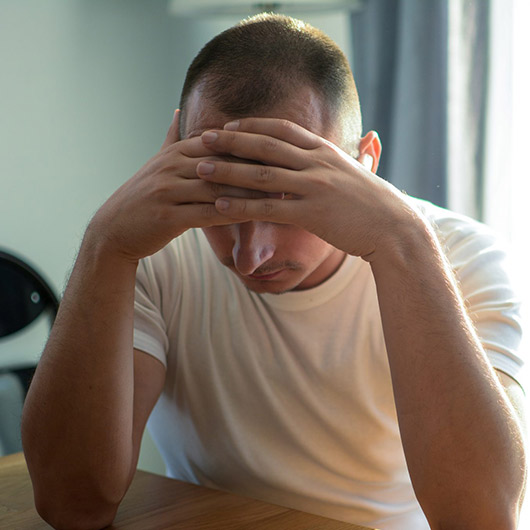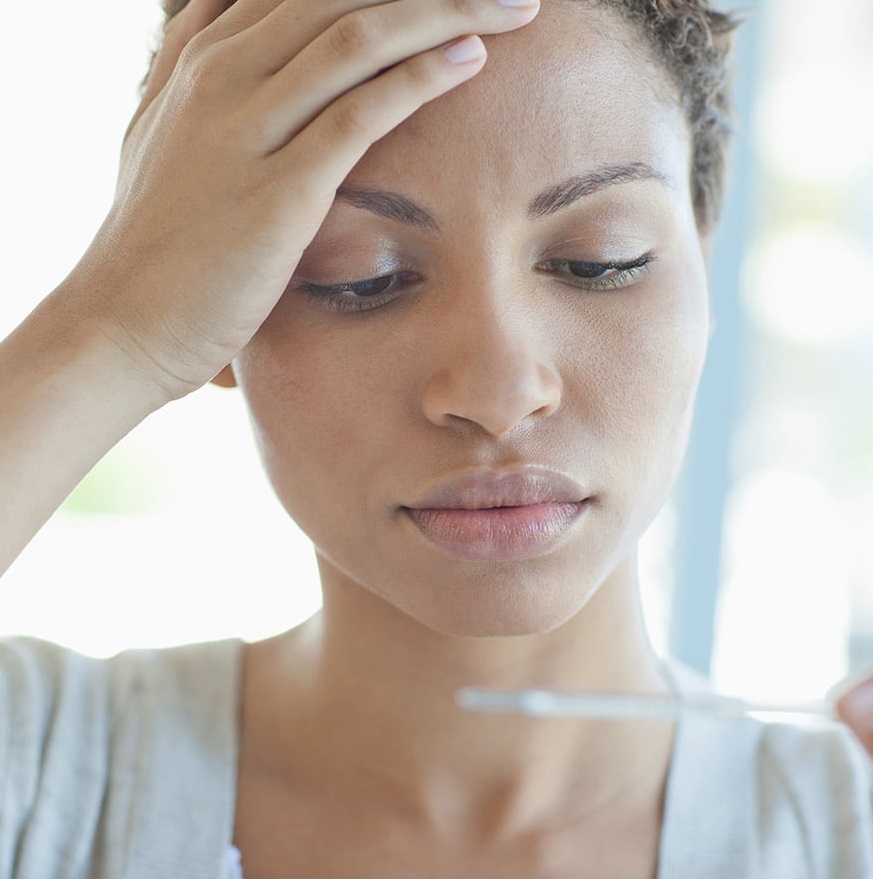

There has never been a quick fix for a hangover, just like there’s no magic pill for weight loss. But what if there was one? Some people are intrigued by intravenous (IV) treatments that can supposedly “cure” a hangover.
Getting IV fluids to make your headache, fatigue and nausea disappear may sound more appealing than lying in bed until the unpleasant symptoms pass, but medical experts say that there’s no validity to this type of treatment.
Why an IV hangover “cure” seems appealing
In recent years, venues offering the hangover-cure concept have been popping up around the country, with trendy-sounding names like “IV lounge” or “drip bar.” Some companies travel to people’s homes, offices or hotel rooms to provide IVs, which makes the experience seem exclusive and special.
The standard treatment offered for a hangover “cure” is a bag of IV fluids, but the companies offering this service typically have add-ons that can be included in the mix, such as vitamins or electrolytes. Some companies also offer anti-nausea medication or pain medication for an additional fee. Choosing vitamins from a menu may make it feel like you’re giving your insides a spa day of sorts, which may add to the novelty of the experience.
Why an IV hangover “cure” isn’t an effective solution
Doctors don’t provide IV fluids to anyone who might want them; they’re reserved for people in a medical setting who are dehydrated and unable to take fluids by mouth. Whenever possible, drinking is the best way to rehydrate, and having a hangover doesn’t prevent someone from drinking fluids.
For more advanced dehydration, fluid replacement may be necessary and can help you rehydrate faster. If drinking water does not work immediately or isn’t possible due to illness or injury, an intravenous fluid (IV) may be necessary. If you are experiencing long lasting symptoms of dehydration such as vomiting, diarrhea, headache, lethargy, muscle cramps and increased thirst, seek treatment from a medical professional rather than an “IV lounge” or “drip bar”. Many walk-in urgent care locations offer IV-fluids to moderately dehydrated people.
Rehydrating with IV fluids won’t cure a hangover, because dehydration is only one symptom. An IV treatment – even with added electrolytes or vitamins – can’t address all of the symptoms of hangover, including headache, nausea, trouble concentrating, delayed reaction time or sensitivity to light or loud noises. And IV fluids won’t make your liver work any faster, which is the way that your body breaks down the alcohol in your system so that you can eliminate it from your body.
Additionally, getting your vein punctured for an IV drip isn’t without risks. It involves a needle stick, which may not appeal to the squeamish, especially if the person delivering your hangover “cure” has trouble accessing a vein and has to stick you multiple times. Any time that you receive an injection, there’s a small chance that you could get an infection or blood clot at the site, and you may develop a bruise later in the day.
IV hangover treatments aren’t covered by health insurance, since they aren’t medically necessary or provided in a medical setting. They may cost $100 to $400, which is a steep price tag for a treatment that hasn’t been proven to be effective.
What to do instead of seeking an IV hangover “cure”
If you drank too much and wake up with a hangover, there are ways to feel a bit better while your body recuperates, such as:
- Drinking water, chicken broth or other fluids to rehydrate
- Skipping hair-of-the-dog hangover remedies containing more alcohol
- Resting, if possible
- Taking non-steroidal anti-inflammatory drugs (NSAIDs) like ibuprofen for a headache
- Avoiding acetaminophen, because it’s broken down by your liver, which is focused on clearing the alcohol from your system
- Using over-the-counter anti-nausea medication as needed
Next Steps & Resources:
- Meet our source: Cristina Ignacio, M.D.
- To learn more about IV hydration, call 848-308-4911.
Find a doctor near me

How to Beat Brain Fog

Drugs & Alcohol Are No Way to Cope

Can Hay Fever Affect Your Brain?
